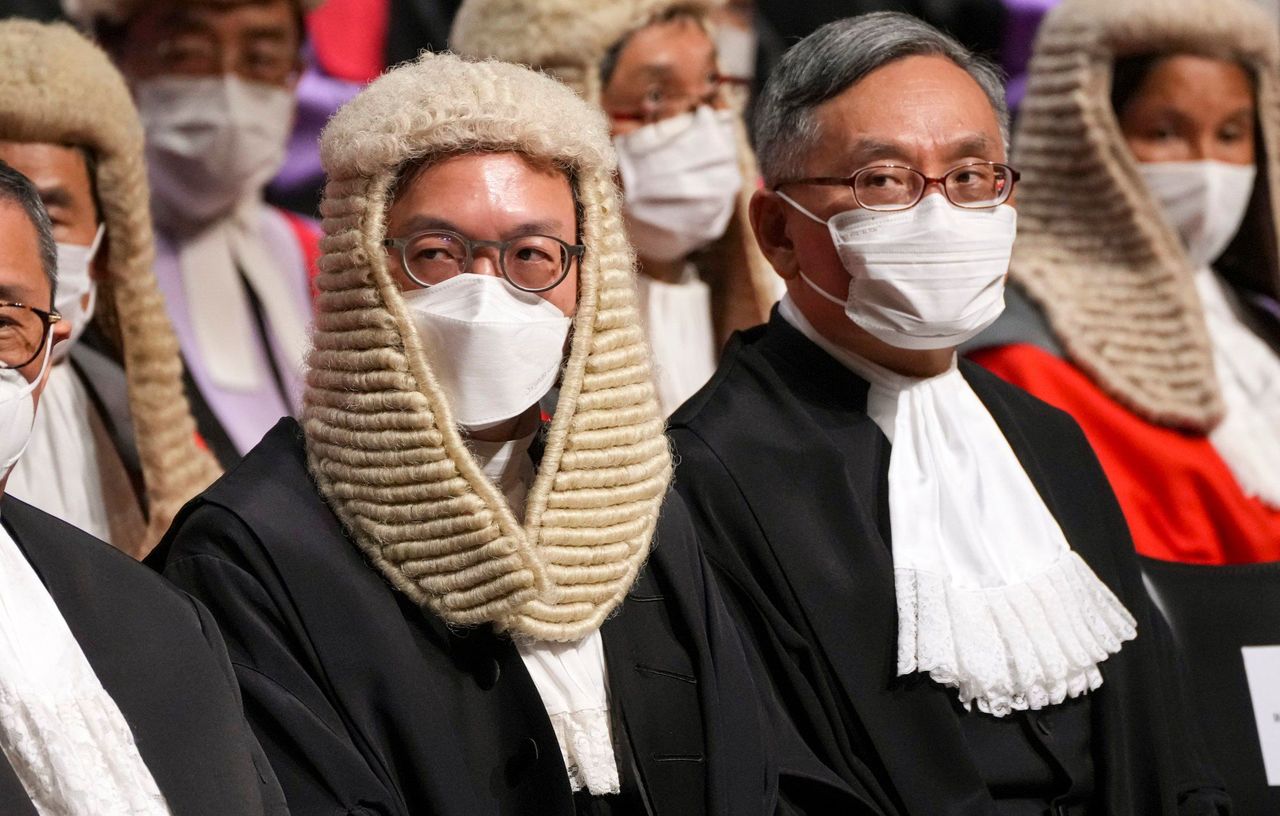Hong Kong News

US attempt to intimidate Hong Kong judges simply intolerable
On July 1, 2022, President Xi Jinping, on the 25th anniversary of the Hong Kong Special Administrative Region, put people’s minds to rest over 2047 (when the Basic Law’s “50 years unchanged” promise is due to expire). Having highlighted how the “judiciary exercises judicial power independently” and emphasised Beijing’s support for the city “retaining its common law system”, he said the “one country, two systems” principle “must be adhered to over the long run”.
This was hugely reassuring, given that the city’s legal system is, as generally acknowledged, fundamental to its success. In the World Justice Project’s Rule of Law Index 2022, Hong Kong was ranked 22nd out of the 140 places surveyed, ahead of the US at 26th, Italy at 32nd and Greece at 44th. This was no mean feat, and its judiciary deserves great credit.
It is, therefore, outrageous that the US Congressional-Executive Commission on China (CECC), which was created in 2000 and monitors China on behalf of the US Congress, has threatened the judiciary, one of the most professional in the Asia-Pacific region.
The Court of Final Appeal, which oversees the legal system, comprises distinguished local judges and eminent global jurists. They include two former chief justices of Australia (Robert French and Anthony Gleeson), the former chief justice of Canada (Beverley McLachlin), and two former presidents of the UK Supreme Court (Nicholas Phillips and David Neuberger). Their judgments are impeccable, and often cited with approval elsewhere in the common-law world.
It is, however, the very strength of the judiciary that makes it a target. It is clearly difficult for antagonists to claim the rule of law is on its last legs in Hong Kong when it is operated by professional judges who are fiercely independent. The CECC, therefore, is seeking to undermine it, and deter its judges from hearing particular cases.
On May 12, it called for 29 of Hong Kong’s judges to be sanctioned, because they have handled national security cases. They include the chief justice, Andrew Cheung Kui-nung, and five other Court of Final Appeal judges (some, British). These, paradoxically, are the very people who have ensured Hong Kong’s national security law is properly applied.
 Chief Justice Andrew Cheung (left), with Secretary for Justice Paul Lam
Ting-kwok at the ceremonial opening of the 2023 legal year, is among the
29 judges being targeted.
Chief Justice Andrew Cheung (left), with Secretary for Justice Paul Lam
Ting-kwok at the ceremonial opening of the 2023 legal year, is among the
29 judges being targeted.
The national security law is heavy on human rights and incorporates the International Covenant on Civil and Political Rights (ICCPR), which contains the fair trial guarantees. It is less draconian than the laws of other common law jurisdictions in the Far East, including Brunei, Malaysia and Singapore (none of which has adopted the ICCPR).
The United States has its own wide-ranging national security laws, and applies them vigorously. It is, for example, using the extraterritorial reach of its Espionage Act of 1917 to hound WikiLeaks founder Julian Assange who, at its request, is detained in London’s Belmarsh prison, fighting extradition. His alleged “crime” is to have exposed malfeasance at the heart of the US government.
Although the CECC claimed the 29 judges have weakened the “rule of law and independent judiciary”, and are “arbitrarily jailing over a thousand political prisoners”, this is crude propaganda. The so-called political prisoners include arsonists, bomb makers and rioters, many of whom have pleaded guilty. The national security law has been applied with restraint, and only about 20 people have been convicted of national security offences.
The targeted judges have ensured that national security cases are handled fairly, that suspects are only convicted when guilt is proved beyond reasonable doubt, and that appeals are resolved on the basis of established legal principles.
As some of the national security cases the CECC highlighted are still before the courts, its threats to the judges handling them are tantamount to an attempt to pervert the course of public justice, and the police should take note. The threats, moreover, to British nationals serving in the judiciary will undoubtedly be a grave concern to British Foreign Secretary James Cleverly, who will hopefully protest.
The CECC, unfortunately, has long since gone rogue, and has form for threatening legal professionals. Last year, it called for 15 Hong Kong prosecutors to be sanctioned, in violation, it would seem, of what the US calls the “international rules-based order”.
As stipulated by the United Nations in its 1990 Havana Declaration: “States shall ensure that prosecutors are able to perform their professional functions without intimidation, hindrance, harassment, improper interference or unjustified exposure to civil, penal or other liability.”
In 1985, moreover, the UN adopted its “Basic Principles on the Independence of the Judiciary”. They provide that the independence of the judiciary should be constitutionally guaranteed (as it is in Hong Kong, by the Basic Law), and that it is “the duty of all governmental and other institutions to respect and observe the independence of the judiciary”. Instead of upholding this principle, the CECC has chosen to violate it, but wiser heads will hopefully prevail in Washington.
However dressed up, attempts to intimidate judges are always intolerable. They have no place in the common law world, to which both Hong Kong and the US belong. Judicial independence is a cherished value, and anybody who threatens it deserves global condemnation.











